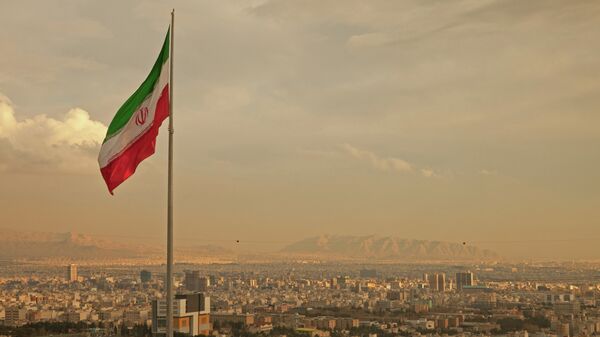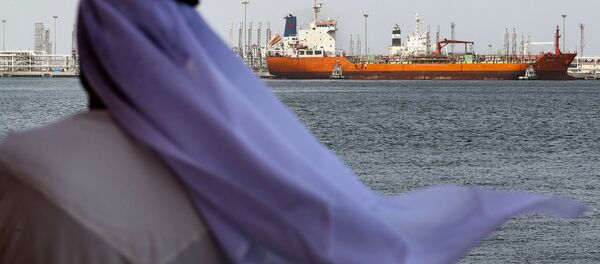Hossein Amir-Abdollahian, special aide for international affairs to the speaker of Iran's Parliament, has called on Riyadh to stop assisting the US in its economic war against the Islamic Republic, hinting that there would be consequences if they failed to do so.
"If Saudi leaders don't stop aiding & abetting the US in its economic war against Iran they must wait for its new & shocking decision", the official wrote in a recent tweet, without clarifying what this "shocking decision" would be.
"The clock is ticking so fast for the continuity of Saudi-Emirati-Israeli dirty policies", he added, posting a caricature featuring the Saudi king dancing alongside Israeli Prime Minister Benjamin Netanyahu with feet made of bombs.
If #Saudi rulers do not stop aiding & abetting the #US in its economic war against #Iran, they must wait for its new & shocking decision. The clock is ticking so fast for the continuity of Saudi-#Emirati-#Israeli dirty policies. pic.twitter.com/8oSljzVBPT
— H.amirabdollahian (@Amirabdolahian) June 4, 2019
Amir-Abdollahian, who is known to have played a major role in shaping Iranian policy in the region in recent years, retweeted his post, originally published in Persian, Arabic, and English.
Iran has vehemently denied any involvement in the tanker attacks, and called on the international community to investigate the acts of sabotage. Last week, Iranian Foreign Minister Mohammad Javad Zarif met with Iraqi officials and called on Gulf countries to sign a non-aggression pact with Tehran in an effort to defuse regional tensions.
Relations between Iran and Saudi Arabia, countries informally seen as the leaders of the Sunni and Shia sects of Islam, respectively, have been poor for decades. In early 2016, Riyadh severed all diplomatic ties with Tehran after Iranian activists attacked Saudi diplomatic missions to protest the execution of prominent Saudi Shiite cleric Sheikh Nimr al-Nimr.
On Sunday, Secretary of State Mike Pompeo indicated that the US would be willing to talk to Tehran, but only if the country began behaving "like a normal nation". Earlier, Iranian President Hassan Rouhani similarly said that Iranian officials were ready to speak to their US counterparts, but only if Washington showed respect for Iran and followed internationally accepted rules of conduct.




